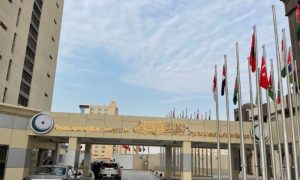LAGOS, Nigeria: Nigeria is grappling with a significant healthcare crisis as thousands of doctors and nurses leave the country each year due to sky-high inflation, low salaries, and an overstretched healthcare system.
According to Nigeria’s Health Minister Muhammad Ali Pate, between 15,000 and 16,000 doctors have departed in the past five years, leaving the country with only 55,000 doctors to serve a population of 220 million.
The mass exodus of healthcare workers has exacerbated the strain on those who remain, making it increasingly challenging for students like Hassan Adewunmi, a second-year medical student at Lagos State University College of Medicine, to envision a future within Nigeria’s healthcare system.
“The elites prefer to seek treatment abroad rather than in Nigeria, and that says a lot about the state of hospitals in the country,” Adewunmi, 19, lamented.
Doctors in Nigeria earn an average of $2,000 to $4,000 annually, translating to about $200 a month, which is far below what they could earn abroad. This stark disparity in income is a major driving force behind the healthcare brain drain.
Most healthcare professionals are concentrated in major cities like Lagos and Abuja, leaving rural areas critically underserved. Dele Abdullahi, president of the Nigerian Association of Resident Doctors, emphasized the dire situation, noting that inadequate facilities and understaffing lead to widespread burnout among healthcare workers.
To curb the brain drain, lawmaker Ganiyu Johnson proposed a bill requiring medical graduates to work for five years in Nigeria before obtaining a full practicing license. While this proposal is contentious, Nigeria urgently needs comprehensive reforms to retain its healthcare workforce and revitalize its struggling healthcare infrastructure.























